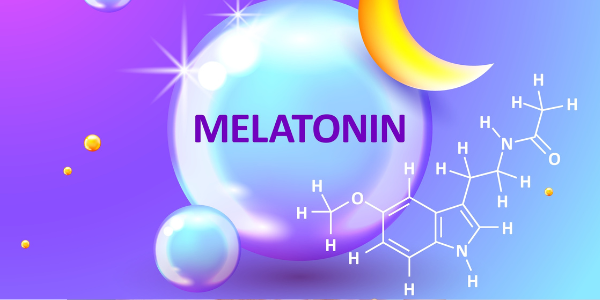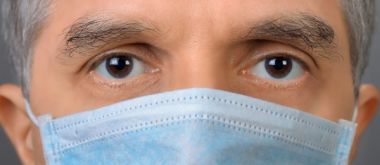When it comes to learning about the COVID-19 virus, a lot of research has taken place during the global pandemic. In addition to learning the impact of the virus on the body, one aspect that has come under research has been the effectiveness of various treatment options. In addition to vaccination and a number of medications that have been researched for their effectiveness at recovery and treatment of the viral infection is a natural approach with the use of melatonin.
A Brief Look at Past Melatonin Research
According to the National Library of Medicine, melatonin is a multifunctional neurohormone mainly synthesized and secreted by the pineal gland in the brain in response to darkness. This light-dark response is what impacts the regulation on the sleep-wake cycle and circadian rhythm in the body. However, helping you drift off to sleep and adjust to time changes may be only one part of the effects of this hormone, making it much more beneficial to your health than you ever realized.
Researching the benefits of melatonin is nothing new. The science of chronobiology, though a relatively new approach in modern medicine, has taken note of melatonin’s impact for years.
In fact, studies have shown that melatonin has a number of antioxidant effects in the body, fighting off the negative effects of free radicals, support bone health and density, providing neuroprotective benefits such as delaying Alzheimer’s disease, and can provide vital immune support, ultimately aiding in reducing respiratory infection and the onset of chest colds.
When the COVID-19 pandemic began, this research provided the launching pad for encouraging further studies that it may include a key to reducing the number of respiratory infection complications associated with COVID-19. And the results have not disappointed, in fact, studies are showing that melatonin can be quite effective in treating COVID-19.
Benefits of Melatonin for Treating COVID-19

This research and the correlation of SARS-CoV-2 (COVID-19) to other viral diseases which inhibit angiotensin-converting enzyme 2 (ACE2) receptors, provided evidence of its potential for use in treatment. Additional research found that melatonin’s anti-inflammatory, immunomodulatory, and protective antioxidant mechanisms make it a viable option to reduce the severity of COVID-19 symptoms in early diagnosed cases.
Additionally, the COVID-19 virus has been found to cause long-term complications of fibrosis, a severe pulmonary lung disease caused by damaged or scarred lung tissue, being referred to as post COVID-19 pulmonary fibrosis. Research has found that, due to its antioxidant and anti-inflammatory benefits, melatonin targets a number of molecular pathways that reduce excessive fibrosis.
Further research has demonstrated that when combined with vaccination against COVID-19, and conventional treatment methods, melatonin can play a central role supporting the immune response to the virus.
The study indicated that melatonin may increase the effectiveness of an anti-corona vaccine in people with a weakened immune system, such as the elderly and patients with comorbidities. This increased response to the vaccine is done so by supporting the formation of B-cells, which produce essential antibodies against the virus strain.
Additional research looked into outcomes of melatonin usage in regards to the rate of clinical recovery as well as the need for intensive care unit (ICU) admission, mortality, and inflammation markers (C-reactive protein [CRP]). On all measures, those individuals who received regular melatonin treatment had greater recovery rates and lower numbers for ICU admission, mortality rates and inflammation markers.
Melatonin Usage for Preventing COVID-19
Through patient analysis with Cleveland Clinic’s COVID-19 registry, findings discovered that melatonin usage is also associated with a nearly 30 percent reduction in the likelihood of testing positive for COVID-19. This finding suggests that, after discussion and approval from a doctor, individuals who take regular melatonin supplementation may improve their chance of protecting themselves against the COVID-19 virus.
Studies also find that melatonin can suppress the activity of hypoxia-inducible factor (HIF)-1α, a marker of increased mortality. In fact, the rise in HIF-1α among diabetics that is a key contributor to the severity of COVID-19 in patients with this preexisting condition.
Additionally, the University of Hong Kong and King’s College London, found that melatonin was not only effective with COVID-19 specific symptoms and provided higher antibody response but also had beneficial effects on the immune system as a whole.
Melatonin will undoubtedly become a key component in treatment options as research continues to progress, and in regards to preventative measures, the benefits are apparent. In addition, its availability over the counter, and affordability make it an appealing option for people who either don’t want to take prescription medications or are looking to enhance their medication treatment or vaccination response.
These ongoing studies demonstrate that the hormone appears to be able to reduce the severity of symptoms in patients with the COVID-19 virus, making it an important talking point when discussing treatment options with your doctor. In regards to regular melatonin supplementation for antioxidant benefits beyond COVID-19 specific concerns, general dosage of melatonin in 1 mg, 3 mg and 5 mg doses is typically considered safe for healthy adults. Moreover, research suggests that a unique formulation called pulsatile-release melatonin may be the answer to best mimicking the body’s natural production of this hormone.
Like all supplementation approaches, checking with a doctor if you have any questions or have chronic obstructive pulmonary disease or any other lung illness can be an important first step to find the proper dosage and correct treatment approach.





